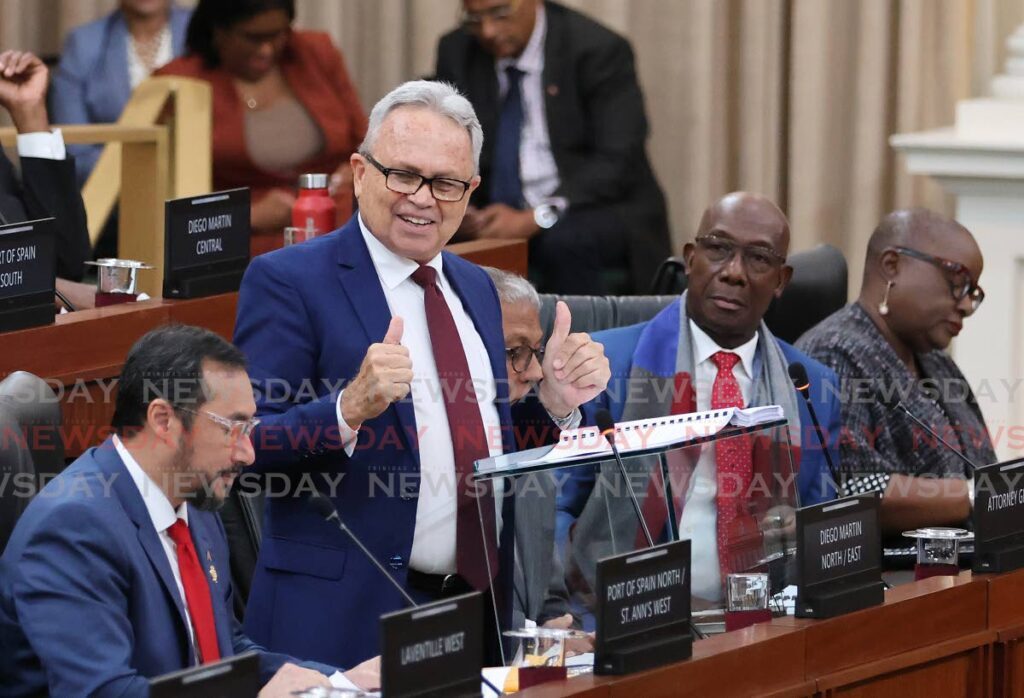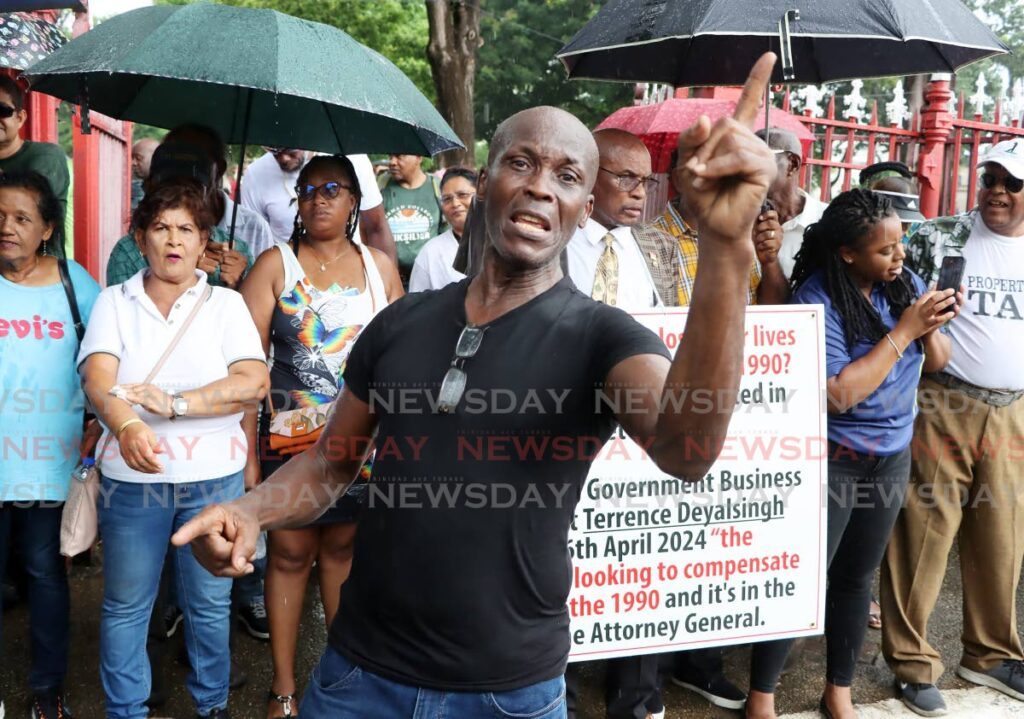Imbert unveils $59.7b budget after 5-hour speech: Pay rise for government workers

FINANCE Minister Colm Imbert has announced a pay increase for public-sector workers, measures to benefit other groups, fight crime and ensure continued economic growth in the face of revenue challenges over the next two years.
Imbert presented the $59.7 billion 2024/2025 budget in a five-hour and 44-minute presentation in the House of Representatives on September 30.
The budget was based on an oil price of US$77.80 per barrel and a natural gas price of US$3.59 per mmbtu.
Last year’s budget was based on an oil price of US$85 per barrel and a natural gas price of US$5 per mmbtu in 2024. The budget’s projected revenue and the fiscal deficit are $54.224 billion and $5.517 billion respectively.
Imbert said the latter is 2.91 per cent of GDP (gross domestic product), again within the international benchmark of three per cent.
The education, health, national security, public utilities, works and transport, rural development and local government, agriculture and housing ministries received some of the largest allocations in the budget.
Imbert told MPs the budget stands is a testament to Trinidad and Tobago’s resilience despite the formidable challenges it has faced over the past nine years.
He identified the covid19 pandemic and poor economic management by the UNC-led People’s Partnership (PP) government as two of those challenges.
On the former, he continued, many of the PNM’s political opponents hoped TT would not recover from the pandemic.
“We not only rebounded, but our economy is stronger and more resilient now than it was before covid19. Indeed, by 2023, just three years after the arrival of the covid19 virus, government revenue had improved by $19.4 billion, when compared to 2020, an increase of 56 per cent.”
Even this year, with severely reduced oil and gas prices and declining local energy production, Imbert said government revenue “is still $3.6 billion more, or eight per cent more, than it was in 2019.”

On the latter, Imbert said poor economic strategies by the PP caused a major energy company to tell the incoming PNM government in September 2015 that TT would get “no income from them for nine years, until 2024.”
He added that thanks to the efforts of the Prime Minister and Energy Minister Stuart Young from 2015 to now, that scenario was corrected through initiatives such as a restructured Atlantic LNG (ALNG), allowing TT to gain more revenues from that company, and cross-border energy initiatives such as the Dragon and Cocuina-Manakin projects.
Imbert said the new arrangements for ALNG, which has TT holding ten per cent shareholding in the company’s trains two, three and four through the National Gas Company (NGC), take effect from October 1.
Dr Rowley made this announcement at a function at ALNG’s administration building in Point Fortin on September 27.
Previously, NGC had ten and 11 per cent shareholding in trains one and four respectively.
Train one was closed in November 2020 owing to gas supply issues.
“Contrary to rumour, therefore, our economic future is assured, and we simply have to navigate a few challenging years before we reap the rewards of the work being done in both the oil and non-oil sectors.”
Imbert repeated, “Our economy is now growing, and we simply have to be careful and spend money wisely and live within our means until 2027 when the cross-border gas is expected to flow.”
Despite this, he continued, government continues to show it can manage extremely difficult financial situations and “meet its obligations while providing support to all our citizens.”
In last year’s budget, Imbert announced an increase in the minimum wage from 17.50 to $20.50 per hour.
He said this measure had its pros and cons.
“While it brings comfort and an improved standard of living for those at the bottom of the income scale, an arbitrary increase in the minimum wage can create hardship for small businesses, and for marginal enterprises, it can even lead to retrenchment, closure or reduced working hours, thus cancelling out its benefits.”
Government, he continued, is unable to make any further increase in the minimum wage.
But Imbert added government is acutely aware of the difficulties endured by people earning the minimum wage.
“Accordingly, while we do not wish to place additional stress on the small business sector at this time, while continuing to review the national minimum wage for an increase in subsequent years, we will increase the minimum wage earned by public-sector employees from $20.50 an hour to $22.50 an hour, an increase of $2 per hour, or 9.8 per cent.”
This increase will take effect from November 1.
Imbert said this measure will benefit “5,100 workers at MTS, 6,900 workers in CEPEP and 6,200 workers in URP, among other minimum-wage workers in the public sector.”
He identified security guards and janitors as the MTS workers who will benefit.
“This will put as much as $500 per month of additional tax-free income into the pockets of this very hardworking group of workers, depending on the hours worked.”
On public-sector wage negotiations, Imbert disclosed he instructed the Chief Personnel Officer (CPO) to begin negotiations with those trade unions which previously accepted the government’s four per cent wage increase for January 2020-December 2022. The increase was for the 2014-2019 period. He then sweetened the deal, increasing the offer for 2020-2022 to five per cent “even in the face of our challenging financial circumstances.”
While he said the Public Services Association (PSA) and National Union of Government and Federated Workers Trade Union (NUGFW) refused the four per cent and have referred the matter to the Industrial Court, Imbert urged both unions to accept the offer and move on.
Among several initiatives to combat crime, Imbert said the police plan to expand their fleet by “2,000 vehicles over the next three years, with 500 vehicles expected in the first phase. “
He added government will provide the necessary resources to the police to assist them in their efforts.
“We understand that behind every statistic is a person, a family, a community that deserves to feel safe and secure.”
Imbert said Cabinet has authorised the Immigration Division to begin converting machine-readable passports to e-passports.

Comments
"Imbert unveils $59.7b budget after 5-hour speech: Pay rise for government workers"